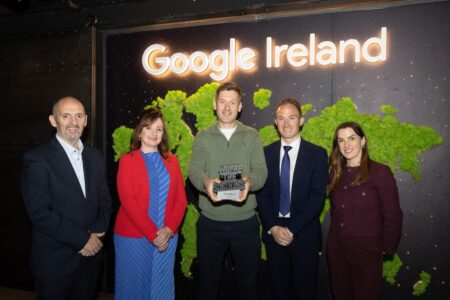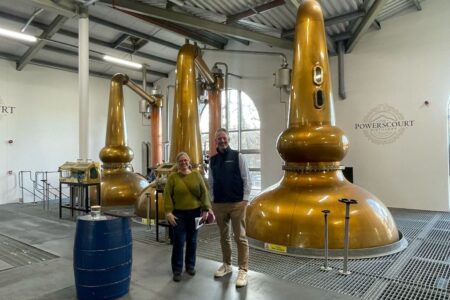The Case for Organic Food
Wicklow NaturallyIreland is behind the curve for organic farming with just 2% of agricultural land used for this purpose while the European average is 7.5%. Recent initiatives from both the European Commission and the Irish government under the European Green Deal and Ireland’s Climate Action Pan 2021 look set to boost this figure but it is important that this is matched by long-term consumer uptake which has been rising but which requires action to increase market penetration. Organic food is usually more expensive, which can make convincing the average consumer to make the switch to an organic diet difficult. Here is some information to help justify a transition to organic.
1. Less Chemicals in the food we consume
Modern farming and food production are heavily reliant on a host of chemicals. At the growing stage fertilizers, herbicides and pesticides are used. At the processing stage ingredients like fungicides and artificial preservatives are added. While most of these chemicals are deemed safe for human consumption in doses administered, others are still of concern as possible carcinogens (see Cancer.org).
The World Health Organisation (WHO) continues to highlight a group of highly toxic residual chemicals known as “Persistent Organic Pollutants” that are in the global food chain, many of which are older, cheaper (off-patent) pesticides, and continues to advocate for their elimination from the food chain (WHO, 2020). However, it is worth noting that The European Union currently has the most comprehensive and protective pesticide regulations of any major agricultural producer region.
With organic food you can rest assured that your food is free of residual chemicals. Consumers are increasingly focusing on both the quality of the food they consume and its health benefits. And as an added bonus – many people genuinely believe that organic food tastes better, So, win-win!
2. The Animals get a Better Deal
Whether you are vegetarian or not, nobody wants to see animals suffer and let’s face it – this isn’t always the case with modern animal farming methods. The welfare of animals is central to good animal husbandry and organic principles can help to deliver a better quality of life for liefestock.
In both poultry and egg farming, organic regulations go beyond the requirements of ‘free-range’, giving the chickens access to more space when indoors and greater access to daylight and fresh air. In addition, they are provided with grassland to scratch about, as these birds instinctively like to do (Teagasc).
Similarly, the Irish Organic Association states that pigs should be provided with clean and comfortable bedding and be given sufficient space to roam outdoors, both of which are rare in modern high- intensity pig farms. Tail biting is common when pigs are kept in small spaces. Organic Pigs are spared from tail-docking, teeth cutting and having painful nose rings fitted.
3. The Birds and the Bees will be Happy
Globally, ecosystems and biodiversity have been damaged to a point of crisis. Over one million species are threatened with extinction while food production is now using one third of the planet’s surface and over three quarters of its freshwater resources. In Ireland 30% of species rich grasslands have been lost in recent decades. Unsurprisingly, pesticides alongside intensive agriculture and land management are killing off insects including bees which are vital for pollination. Organic farming omits harmful chemicals that have been linked to the decline of bees.
Organic farms act as a refuge for wild plants, offsetting the loss of biodiversity on conventional farms, a study suggests. Fields around organic farms have more types of wild plants, providing benefits for wildlife, say scientists (BBC, 2015).
Critics will suggest that organic farming produces lower yields than conventional methods but it does create greater resilience and lowers the need for expensive inputs.
“A person who buys organic food doesn’t really buy it in order to be healthy; they buy it to regain a kind of solidarity as the one who really cares about nature. They buy a certain ideological stance”. Slavoj Žižek
4. Organic Food Production is More Sustainable
According to American businesswoman Maria Rodale, “Switching to all organic food production is the single most critical (and most doable) action we can take right now to stop our climate crisis”. Healthy soil creates healthy food and a healthy environment and healthy soil is the basis for organic agriculture.
“Organic farmers make sure they maintain a healthy soil to pass on to future generations by incorporating methods such as rotations and adding natural fertility such as green manures or farmyard manure” (Beechlawn Website, 2022)
In addition, Organic farms help to preserve the fragile ecosystems within Ireland’s waterways, as no pollutants are released into our rivers and lakes. Ireland’s rivers are in a particularly bad state due to runoff from agriculture. According to The Rivers Trust, almost half of Ireland’s rivers have unsatisfactory water quality levels and there was a decline in water quality in 230 rivers recorded in 2020 due largely to Nitrogen and phosphorus (both fertilizers) from conventional agriculture (Teagasc, 2022). When this happens, the growth and reproduction of microorganisms reduce the dissolved oxygen content of the water body. Without sufficient dissolved oxygen in surface water, fish and other aquatic species suffocate.
Another reason to choose organic.
5. Organic Farming is Less Reliant on Fossil Fuels
As discussed, organic farms do not apply artificial chemicals and fertilizers which are by-products of the fossil fuel industry, which is why it is also known as the petro-chemical industry. Organic farming methods aim to increase soil carbon and therefore reduce greenhouse gasses. Organic farming can directly contribute to reducing our emissions and therefore reducing the impact of climate change (Irish Organic Association, 2022).
To spread petro-chemicals (fertiliser, pesticides, herbicides) all requires machinery, which in turn requires diesel and engine oil, not to mention the resources required to build the machinery. Many of these chemicals are imported from countries around the world, which adds to the carbon footprint of a food. Organic farming cuts out a lot of these processes and on smaller organic farms weeding and adding manure is done by hand.
As an environmentalist, David R. Brower puts it “the more we pour the big machines, the fuel, the pesticides, the herbicides, the fertilizer and chemicals into farming, the more we knock out the mechanism that made it all work in the first place”
So there you have five solid reasons to justify those extra few pennies when choosing organic – Vote with your wallet!


